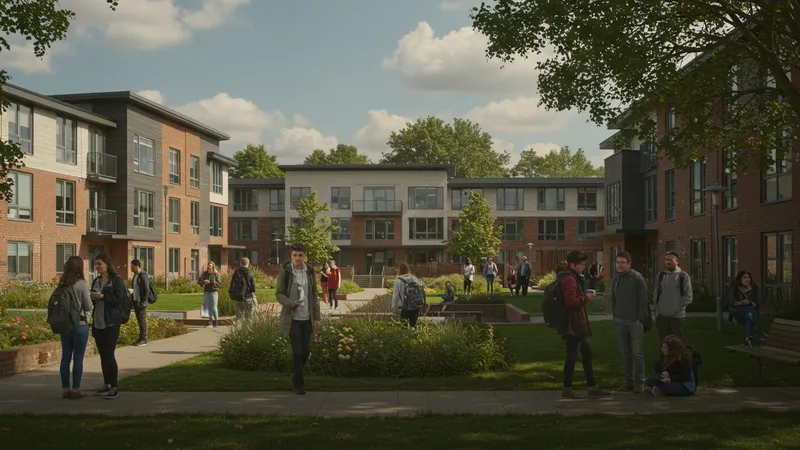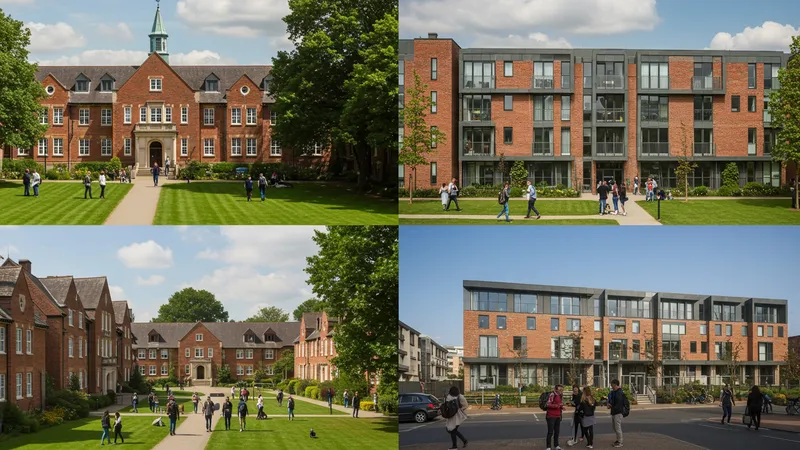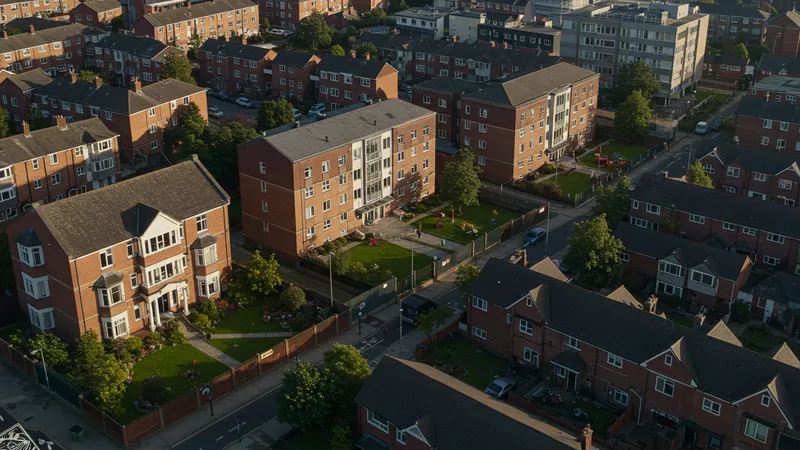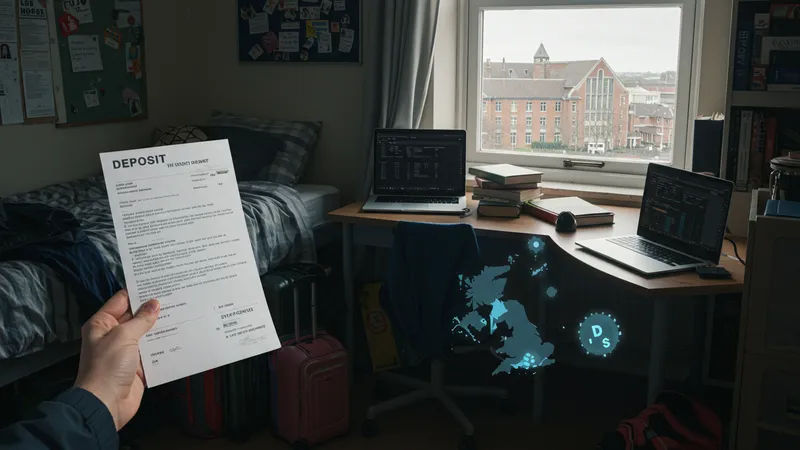

Finding the right place to live while studying in the United Kingdom can shape a student’s entire university journey. The subject of student accommodation covers key aspects such as location, type, amenities, affordability, and even cultural experiences. In the UK, the student housing sector ranges from traditional university halls to independent student private providers, each catering to different preferences and budgets. Navigating these choices is essential, as your accommodation can influence your social life, wellbeing, and even academic performance.
Student accommodation in the UK isn't just about where you sleep. It's about convenience, security, social connections, and budget management. With students coming from all regions and countries, there’s a system of established providers and a growing number of options tailored to the diverse needs of domestic and international students. The spectrum includes university-managed halls, privately owned student developments, shared houses, and even homestays, each with their unique pricing, features, and community environment.

University-managed halls often appeal to first-year students seeking an inclusive community and easy access to campus resources. These residences typically include utility bills and security in the rent, with standard prices hovering between £100 and £250 per week depending largely on location and services offered. Meanwhile, private providers such as Unite Students and Nido Student deliver more upscale facilities—think onsite gyms, cinemas, and communal spaces—though these features can push the weekly cost higher.
Some students opt for off-campus shared houses or flats, managed by landlords or letting agents. While these might offer more independence and sometimes savings compared to high-end student blocks, they require students to coordinate their own bills and maintenance. Shared accommodation can be found through platforms like dwell Student Living or university housing services, with popular UK student cities like Manchester, Leeds, and London often commanding higher rents.
The rise of private student accommodation in major UK cities reflects an increased demand for choice, privacy, and modern amenities. These providers often cater not just to UK students but also to thousands of international students seeking a smooth transition and welcoming environment. The terms of rental agreements, deposit requirements, and included amenities vary by provider, so research and early booking are highly recommended.
Beyond budget and convenience, your choice of accommodation will influence your daily routine, leisure activities, and exposure to UK student culture. Each provider brings their own values and amenities to the table, from sustainability initiatives to integrated social events. As you consider your preferences and priorities, the options open up possibilities that extend far beyond a place to sleep—the right accommodation can be both a base and a vibrant hub for your life in the United Kingdom.
The deeper details reveal even more valuable insights ahead, from what truly makes each accommodation unique to practical tips for securing your ideal student home in the UK’s dynamic rental market.
Student accommodation in the United Kingdom can be grouped into several main categories, each with unique features designed to meet varying needs. University-owned halls of residence are the traditional choice for first-year students, offering on-campus living, integrated support services, and the chance to build lasting friendships. These halls are furnished and managed by the university, providing a sense of security and convenience that many new arrivals appreciate.

Private halls, such as those managed by Unite Students and Nido Student, have grown in popularity for their modern amenities and desirable locations near city centres and campuses. Unlike university-run halls, these typically cater to students from multiple institutions, creating a diverse community. Features like private gyms, dedicated study areas, and 24/7 security make these options appealing, though often at a premium price.
House shares or flatshares allow students to rent a property together, typically via letting agents or through platforms like dwell Student Living. This option can grant increased independence and flexibility, especially for those in their second year or beyond. While often more affordable than private halls, shared housing comes with the responsibility of managing bills and property maintenance.
Homestays provide a distinctively personal experience, offering international students the chance to live with a local UK family. This arrangement encourages cultural exchange and language immersion, valuable particularly for those new to the country. Homestay options vary in price, often falling between £120 and £200 per week, and can be sourced through university partnerships or specialist agencies.
The cost of student accommodation in the United Kingdom depends significantly on city, accommodation type, and included amenities. For instance, London and south-east England tend to have the highest prices, with university halls often starting at £200 per week, whereas northern cities such as Sheffield or Liverpool may offer comparable rooms from £100 weekly. Private providers like Nido Student frequently advertise all-inclusive rates, but the premium covers features like ensuite bathrooms, social spaces, and on-site events.

Location is a key consideration. Proximity to campus not only reduces travel time but can also foster a stronger connection to university life. University halls typically guarantee walking distance to lectures and libraries, while private developments prefer city centre locations—ideal for those balancing student life with part-time work or exploring urban culture. Shared houses, while sometimes farther from campus, can come at a competitive price and may offer more space.
Amenity differences can dramatically shape day-to-day living. Top private providers invest in study rooms, music practice pods, and high-speed internet, all bundled in the rental package. In contrast, shared houses might offer larger kitchens or living rooms, which suit students who value personal space or cooking with friends. Always compare which utilities and services are included, such as WiFi, electricity, and insurance, to understand genuine monthly costs.
In the UK, many universities and private landlords are adapting properties to improve sustainability and accessibility. This can include recycling programs, bike storage, or accessible rooms for students with disabilities. While these upgrades can increase demand (and sometimes price), they reflect a wider shift in student expectations and contribute positively to campus and city communities alike.
Securing student accommodation in the United Kingdom usually involves contracts known as tenancy agreements, which outline the terms, length, and obligations of both tenants and landlords or providers. University halls often provide fixed-term contracts covering the academic year, making budgeting simpler for students. Private halls and letting agents may offer more flexibility, with options for semester or whole-year agreements, but it’s vital to read the small print regarding early exit and break clauses.

Deposits are a standard part of the process. In most UK accommodation, expect to pay a deposit equivalent to one month’s rent. This is held as security against damage or unpaid rent and is refundable at tenancy end, assuming the property is left in good condition. Reputable providers place deposits in government-backed tenancy deposit schemes, giving students legal protection and peace of mind.
Inventory checks, condition reports, and photographic evidence are encouraged before moving in. These ensure any pre-existing issues are logged, reducing the risk of deposit disputes when the tenancy finishes. Students are also advised to clarify with providers like Unite Students or dwell Student Living about what is included—basic furnishings, kitchenware, or bedding might not always be standard.
The UK rental market moves quickly, particularly around university admission dates. For popular cities and the most affordable or desirable properties, early research and timely applications are crucial. Some providers offer video tours and virtual booking for international students, allowing them to secure accommodation before arrival and ease their transition to life in the UK.
Living in student accommodation in the United Kingdom is more than a housing arrangement; it’s an opportunity to engage with new cultures, form lifelong friendships, and embrace independence. University halls and private providers often organise social events, from themed parties to study workshops, helping residents connect beyond academic circles. These shared experiences can support students in managing the challenges of university life, especially for those moving far from home.

The amenities and location of your chosen accommodation often determine your daily routine and leisure activities. Living near city centres or campus means easier access to libraries, student unions, and local attractions, while properties with common rooms or communal kitchens offer the chance to socialise while living comfortably. Many accommodations now offer programmes focused on mental wellbeing, sustainability, or career skills, extending support beyond simple shelter.
Student feedback in the UK consistently highlights factors such as fast, reliable WiFi, secure access, and responsive maintenance as key to positive living experiences. Reputable names like Nido Student and Unite Students invest heavily in these aspects, addressing modern expectations. For those choosing shared housing, clear agreements with housemates about chores and visitors can preserve harmony and ensure everyone’s comfort.
Ultimately, the student accommodation landscape in the UK is evolving with trends toward convenience, wellbeing, and inclusive design. Whether you opt for university halls, a private provider, or a flatshare, understanding your priorities and thoroughly researching your options can unlock a rewarding and memorable student experience throughout your studies in the United Kingdom.